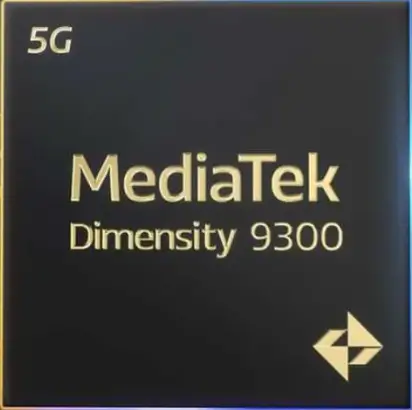Apple A14 Bionic vs MediaTek Dimensity 9300
We have compiled a detailed comparison of the recently introduced
A14 Bionic vs Dimensity 9300
SoCs, designed by
Apple and Mediatek respectively. Our comparison outlines the benefits and
limitations of these
6-core and 8-core
processors, focusing on
their performance across
Geekbench, Antutu, and
3DMark benchmarks, and
technical aspects.
Review
General comparison of performance, power consumption,
and other
indicators
CPU Performance
Evaluation of Single-Core and
Multi-Core Processor Performance
Gaming Performance
Gaming and OpenCL/Vulkan
Performance of the Graphics Processing Unit (GPU)
Battery life
Energy Efficiency in Battery Usage
Tech Insist Score
Overall Performance Rating of the
Chip
Key Differences
Main differences and advantages of each chip
Pros of Dimensity 9300
Benchmarks
Evaluating performance through competitive testing in
leading benchmarks.
AnTuTu 10
The AnTuTu Benchmark evaluates CPU, GPU, RAM, and I/O
capabilities across various scenarios.
CPU
203493
485064
GPU
284242
899463
Memory
131989
357691
UX
131211
312866
Total score
750935
2055084
GeekBench 6
The GeekBench test shows raw single-threaded and
multithreaded CPU
performance
3DMark
A cross-platform benchmark that assesses graphics
performance in Vulkan
(Metal)
3DMark Wild Life Performance
Stability
77%
-
Graphics test
50 FPS
116 FPS
Score
8375
19522
Specifications
Full list of technical specifications of A14 Bionic and Dimensity
9300
Architecture
2x 3.1 GHz – Firestorm
1x 3.25 GHz – Cortex-X4
Cores
6
8
Base Frequency
1800MHz
2000MHz
Turbo Frequency
3100MHz
3250MHz
Instruction set
ARMv8.5-A
ARMv9.2-A
L2 cache
128 KB
-
L2 cache
8 MB
-
L3 cache
-
18 MB
Process
5 nanometers
4 nanometers
Transistor count
11.8 billion
22.7 billion
TDP (Sustained Power Limit)
6 W
-
GPU name
Apple A14 GPU
Mali-G720 Immortalis MP12
Architecture
-
Valhall 5th gen
GPU frequency
-
1300 MHz
Pipelines
4
12
Shading units
-
192
Total shaders
-
384
FLOPS
998 Gigaflops
5990.4 Gigaflops
Vulkan version
-
1.3
OpenCL version
-
2.0
DirectX version
-
-
Neural processor (NPU)
Neural Engine
MediaTek APU 790
Memory type
LPDDR4X
LPDDRLPDDR5T
Memory frequency
2133 MHz
4800 MHz
Bus
-
-
Max bandwidth
34.1 Gbit/s
76.8 Gbit/s
Max size
6 GB
24 GB
Storage type
NVMe
UFS 4.0
Max display resolution
2732 x 2048
2960 x 1440
Max camera resolution
-
1x 320MP
Video capture
4K at 60FPS
8K at 30FPS, 4K at 60FPS
Video playback
4K at 60FPS
8K at 30FPS, 4K at 60FPS
Video codecs
H.264, H.265, Motion JPEG
H.264, H.265, AV1, VP9
Audio codecs
AAC, AIFF, CAF, MP3, MP4, WAV, AC-3, E-AC-3, AAX, AAX+
AAC LC, MP3, HE-AACv1, HE-AACv2, FLAC
Modem
-
-
4G support
LTE Cat. 18
LTE Cat. 24
5G support
Yes
Yes
Download speed 5G
Up to 7500 Mbps
Up to 10000 Mbps
Download speed 4G
-
-
Upload speed 5G
Up to 2500 Mbps
Up to 7000 Mbps
Upload speed 4G
-
-
Wi-Fi
6
7
Bluetooth
5.0
5.4
Navigation
GPS, GLONASS, Beidou, Galileo
GPS, GLONASS, Beidou, Galileo, QZSS, NAVIC

